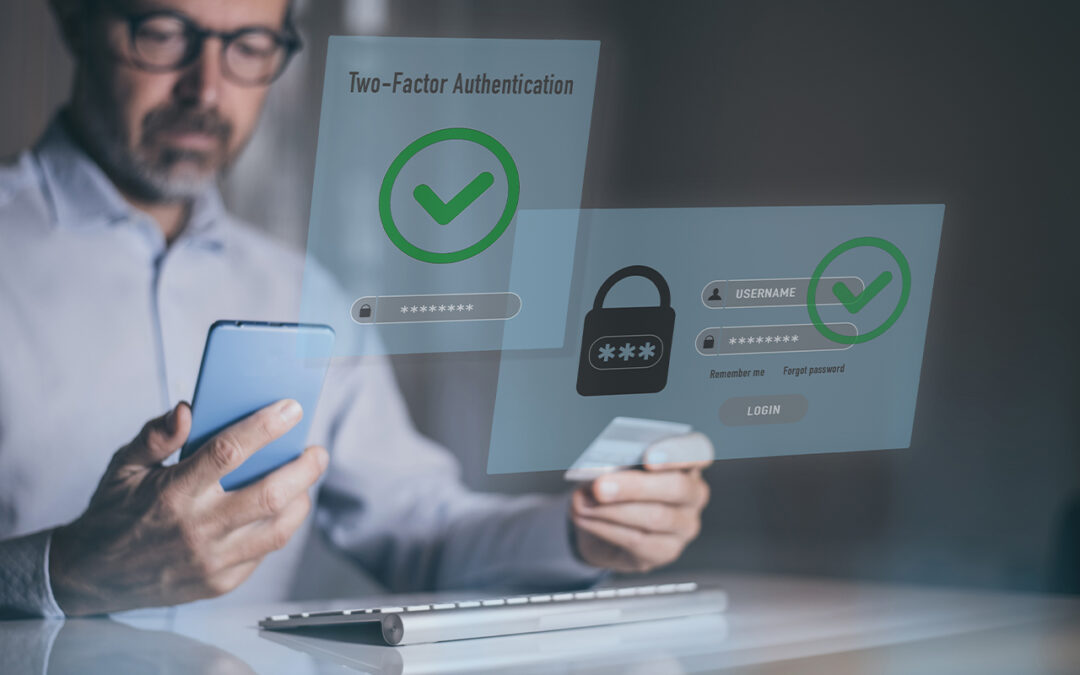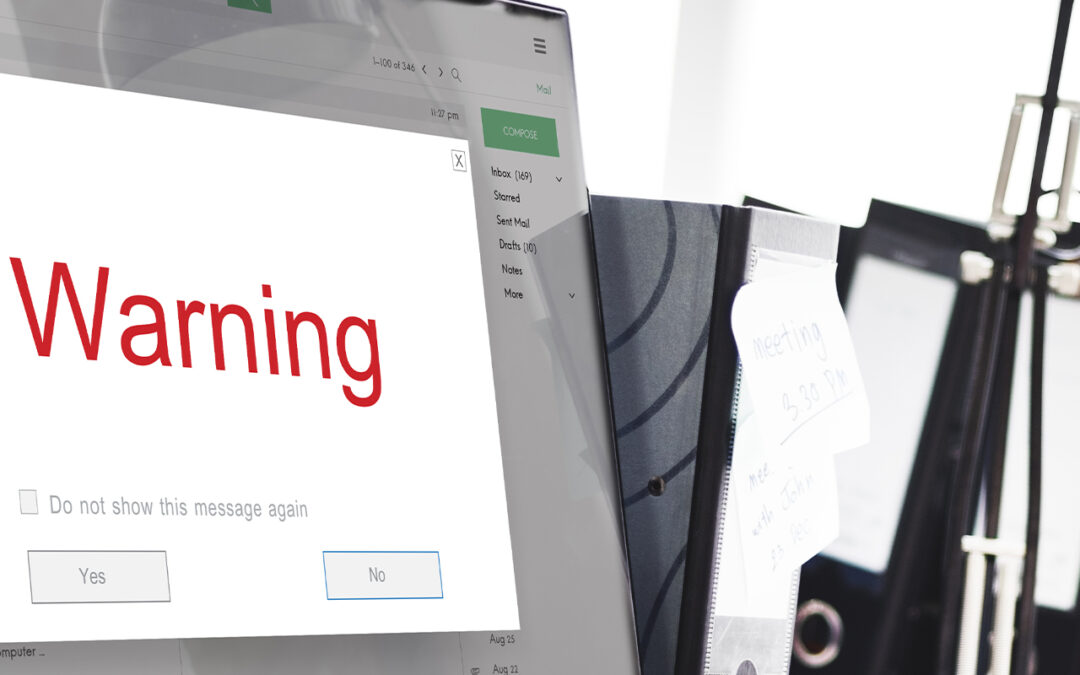
by yncuniversity | Oct 3, 2024 | Fraud Prevention
How to Spot a Fraudulent Cheque: Key Signs and Risks
October 3, 2024
Fraudulent cheques can cause significant financial loss and legal trouble. With the rise of mobile banking, cheque fraud schemes have evolved, and it’s important to know how to identify a fake cheque.
Here are some key signs to look for and risks to be aware of:
The Form: “Mobile Deposit Only” is Not a Valid Cheque
One of the first red flags of a fraudulent cheque is the phrase “Mobile Deposit Only” or any similar wording. This form is not considered a valid cheque by financial institutions. The phrase suggests that the cheque is only intended for mobile deposit, but legitimate cheques should not have such restrictions printed on them. If you come across a cheque with this phrase, it is best to treat it with suspicion.
What to Look for on a Cheque
To identify a fraudulent cheque, carefully examine these key elements:
- Check the Details: Ensure the cheque has all the necessary details, including the payer’s name, the bank’s name, the cheque number, and a valid date. Missing or incomplete information can be a sign of fraud.
- Check for Alterations: Look for signs of tampering, such as erasures, corrections, or overwriting. Any irregularities could mean the cheque has been altered.
- Pay Attention to Printing Quality: A legitimate cheque usually has high-quality printing with clear, consistent fonts. Fuzzy or distorted printing can indicate that a cheque has been forged or created using low-quality printing methods.
- Verify the Bank Details: Ensure that the cheque contains the correct bank name, address, and logo. Fraudsters often use incorrect or outdated information to make a cheque appear legitimate.
- Inspect the MICR Line: The MICR (Magnetic Ink Character Recognition) line at the bottom of the cheque contains the routing number, account number, and cheque number. Check for irregularities in font size or spacing. Real cheques are printed with magnetic ink; counterfeit cheques often use standard ink.
Additional Risks Involved in Cheque Fraud
There are several risks associated with cheque fraud, including:
- Financial Loss: If a fraudulent cheque is deposited, and it bounces, you could be held responsible for the amount, potentially resulting in significant financial loss.
- Legal Consequences: Depositing a fraudulent cheque, even unknowingly, can lead to legal complications. A financial institution could report suspicious transactions to authorities, and the depositor could face investigation.
- Identity Theft: Fraudulent cheques are often part of broader schemes, like identity theft. If you provide personal information to a fraudster, it can be used for further fraudulent activities.
Being vigilant and knowing the warning signs of a fraudulent cheque can help protect you from financial loss and legal risks. Always examine cheques carefully, especially if they contain unusual phrases like “Mobile Deposit Only.” When in doubt, contact your financial institution to verify the cheque’s authenticity before taking any action.
YNCU members, if you know, or think you are in possession of a fraudulent cheque, please contact our Service Excellence Centre at 1-800-413-YNCU (9628). You can also contact the Canadian Anti-Fraud Call Center at 1-888-495-8501.
Don’t forget to follow us on Instagram and Tik Tok for more Honest Money Talk tips!

by yncuniversity | Sep 13, 2024 | Fraud Prevention
HOW TO MAKE A STRONG PASSWORD
September 13, 2024
Creating a strong password is crucial for protecting your online accounts from unauthorized access. If your online accounts get hacked, the consequences can be severe and far-reaching. Unauthorized access to your accounts can lead to identity theft, as hackers might steal personal information like your Social Insurance Number, financial details, and other login credentials. This can result in fraudulent transactions, ruined credit scores, and significant financial losses. Additionally, sensitive information, such as private messages or personal photos, could be exposed or used to blackmail or manipulate you. On a broader scale, compromised accounts can jeopardize your professional reputation if work-related information is accessed or misused. The aftermath of a hack often involves a complex and time-consuming process to regain control, secure your accounts, and address any damage caused. Taking preventive measures and practicing good digital hygiene can help mitigate these risks.
Here are some tips to help you craft an effective and fraud-proof password.
1. Length Matters – Aim for a password that’s at least 12 characters long. The longer the better.
2. Use a Mix of Characters – Include a combination of uppercase letters, lowercase letters, numbers, and special characters such as @, #, $, %.
3. Avoid Common Words – Stay away from using easily guessable words like ‘password’, ‘123456’, ‘qwerty’, or common phrases. These are the first things hackers try.
4. Randomness is Key – Generate your password randomly rather than using personally identifiable information like your name, birthdate, or pet’s name.
5. Passphrase – Consider using a passphrase, which is a sequence of words or a sentence. It’s easier to remember and harder to crack if long enough.
6. Do NOT reuse passwords – Each of your accounts should have a unique password. Reusing passwords across multiple accounts can lead to devastating security breaches if one account is compromised.
7. Change Regularly – Regularly change your passwords, especially for critical accounts like email and banking.
8. Use a Password Manager – Consider using a password manager to generate and store complex passwords securely. This way, you only need to remember one strong master password.
9. Stay Private – Avoid sharing your passwords with anyone and refrain from storing them in easily accessible places like sticky notes on your desk or unencrypted files on your computer.
10. Two-Factor Authentication (2FA) – Whenever possible, enable two-factor authentication for an extra layer of security, even if someone manages to obtain your password.
Remember, the goal is to make it as difficult as possible for hackers to guess or crack your password while still being memorable enough for you to use without having to write it down.
YNCU members, if you know, or think you have been a victim of your personal banking information being compromised, please contact our Service Excellence Centre at 1-800-413-YNCU (9628). You can also contact the Canadian Anti-Fraud Call Center at 1-888-495-8501.
Don’t forget to follow us on Instagram and Tik Tok for more Honest Money Talk tips!

by yncuniversity | Aug 1, 2024 | Fraud Prevention
Beware of Phishing: How to Detect & Respond to Suspicious Emails
August 1, 2024
In today’s digital age, phishing has become a prevalent threat to online security. Phishing attacks involve fraudulent attempts to obtain sensitive information, such as usernames, passwords, and credit card details, by masquerading as a trustworthy entity in electronic communities. These deceptive emails often appear legitimate, making it crucial for individuals to be vigilant and aware of the signs of phishing.
Spotting Phishing Emails:
- Check the sender’s email address: Pay close attention to the sender’s email address. Phishing emails often use email addresses that mimic legitimate sources but may contain slight variations or misspellings.
- Look for generic greetings: Phishing emails commonly use generic greetings like “Dear Customer” instead of addressing recipients by name. Legitimate organizations usually personalize their communications.
- Watch out for urgent requests: Phishing emails often create a sense of urgency, urging recipients to take immediate action. Be cautious of emails that pressure you to provide sensitive information or click on suspicious links hastily.
- Verify hyperlinks: Hover your mouse cursor over hyperlinks in the email to preview the destination URL. Be wary of URLs that don’t match the purported source or contain unusual characters.
- Inspect for spelling and grammar errors: Phishing emails often contain spelling and grammatical mistakes. Legitimate organizations typically maintain professional standards in their communications.
What To Do If You Receive a Phishing Email:
- Don’t click on suspicious links: Refrain from clicking on any links or downloading attachments in the email, as they could lead to malware or phishing websites.
- Report the email: Most email providers offer options to report phishing emails. By reporting the email, you help protect others from falling victim to similar scams.
- Delete the email: Safely delete the phishing email from your inbox and trash folder to avoid accidentally interacting with it in the future.
If You Fell For a Phishing Email:
- Change your passwords immediately: If you provided sensitive information in response to a phishing email, change your passwords for the affected accounts immediately to prevent unauthorized access.
- Monitor your accounts: Keep a close eye on your bank statements, credit reports, and other online accounts for any suspicious activity.
- Consider identity theft protection: If you’re concerned about identity theft, consider enrolling in an identity theft protection service to safeguard your personal information and financial assets.
Staying informed and vigilant is key to protecting yourself against phishing scams. By recognizing the signs of phishing emails and knowing how to respond appropriately, you can minimize the risk of falling victim to these deceptive tactics and safeguard your personal and financial information online.
YNCU members, if you know, or think you have been a victim of a phishing email and your personal banking information has been compromised, please contact our Service Excellence Centre at 1-800-413-YNCU (9628). You can also contact the Canadian Anti-Fraud Call Center at 1-888-495-8501.
Don’t forget to follow us on Instagram and Tik Tok for more Honest Money Talk tips!

by yncuniversity | Jul 4, 2024 | Fraud Prevention
Common Marketplace Scams: How to Stay Vigilant and Protect Yourself
July 4, 2024
In today’s digital age, online marketplaces have become a staple for buying and selling goods. Platforms like eBay, Craigslist, Facebook Marketplace, and Amazon offer convenience and variety but also attract scammers looking to exploit unsuspecting users. Understanding common marketplace scams, knowing what to watch for, and learning how to protect yourself, are crucial to avoid falling victim to fraud. Here’s a guide to help you navigate these potential pitfalls.
Common Marketplace Scams
- Fake Listings: Fraudsters create listings for non-existent items – often at attractive prices. After payment is made, the item is never delivered, and the seller becomes untraceable.
- Overpayment Scams: The scammer overpays for an item with a fake check and asks the seller to refund the excess amount. The original check bounces, leaving the seller out of pocket for the ‘refund’ they issued.
- Phishing Scams: Scammers send links to fake websites that mimic legitimate marketplaces to steal login credentials or financial information.
- Shipping Scams: Scammers persuade buyers to use non-traceable shipping methods. The item either never arrives, or the seller receives payment through an irreversible method like PayPal Friends and Family, allowing the scammer to keep both the item and the payment.
- Counterfeit Goods: Sellers offer branded items at low prices, but the buyer receives a counterfeit or low-quality imitation.
How to Prevent Falling Victim to a Scam
- Research: Always research the seller or buyer. Check their ratings, reviews, and any previous transaction history if available.
- Secure Payment Methods: Use secure payment methods. Avoid e-transfers or non-reversible payment methods.
- Meet in Person: If possible, arrange to meet in a public place to exchange goods and payment. Bring a friend along for added security.
- Verify Listings: Be wary of listings with prices that seem too good to be true. Verify the authenticity of high-value items before purchasing.
- Check Website URLs: Ensure the website URL is correct and secure (look for “https” and a padlock symbol) before entering personal or financial information.
- Trust Your Instincts: If something feels off, it probably is. Don’t proceed with transactions that raise red flags.
What to Do If You Think You Have Been Scammed
- Report Immediately: Report the incident to the marketplace platform. They may assist in recovering your funds or taking action against the scammer.
- Contact Your Financial Institution: If you provided financial information or made a payment, contact your financial institution or credit card company immediately to attempt to stop the transaction or dispute the charge to prevent further loss to you or others.
- File a Police Report: For significant financial losses, file a report with your local law enforcement. This can help in documenting the incident for future claims and to help protect others from the same scam.
- Change Passwords: If you suspect your account details were compromised, change your passwords immediately and monitor your accounts for suspicious activity.
- Notify Consumer Protection Agencies: Inform agencies like the Canadian Anti-Fraud Centre (click HERE to report), which can provide additional resources and track scam trends.
As a financial institution, YNCU prioritizes your security and financial health. Staying vigilant, informed, and cautious can help you avoid the pitfalls of marketplace scams. Always prioritize your security and be proactive in safeguarding your online transactions. Together, we can create a safer online marketplace environment.
YNCU members, if you know, or think you have been a victim of a marketplace scam and your banking information has been compromised or you made a payment, please contact our Service Excellence Centre at 1-800-413-YNCU (9628). You can also contact the Canadian Anti-Fraud Call Center at 1-888-495-8501.
Don’t forget to follow us on Instagram and Tik Tok for more Honest Money Talk tips!

by yncuniversity | Jun 1, 2024 | Fraud Prevention
What’s Trending in the Fraud Scene?
June 1, 2024
“For Mobile Deposit Only” Scam
In an age where convenience is king, mobile banking has become a staple for many. With just a few taps on your smartphone, you can deposit cheques, transfer funds, and manage your finances on the go. However, amidst this convenience lies a lurking danger: the “For Mobile Deposit Only” cheque scam.
While mobile depositing offers a quick and efficient way to handle cheques, scammers have found ways to exploit this technology for their vicious schemes. The scam typically involves fraudulent cheques marked with the phrase “For Mobile Deposit Only”. These cheques appear legitimate at first glance, but they are often counterfeit or stolen.
The method of the scam is simple yet effective. The scammer leads the member to believe that they are applying for an online loan. The victim, unsuspecting of any wrongdoing, gives the scammer/fraudulent loan company their banking information as well as their login credentials for online banking. Once the scammer has access to their victim’s online banking they deposit a “For Mobile Deposit Only” cheque, and send out the funds via e-transfer or bill payment to a money service business or crypto exchange. However, the real trouble begins when the bank discovers the fraudulent nature of the cheque. By then, the scammer has already disappeared with the member’s financial information, the funds they believed they were receiving from an online loan, and possibly additional funds the member had in their account, leaving the victim to face the consequences. The victim not only loses the money they thought they had received but may also be held liable for any fees or penalties associated with the fraudulent transaction.
To add insult to injury, victims of this scam may find themselves facing legal trouble, as depositing a fraudulent cheque is considered illegal activity. Even if done unknowingly, ignorance is not a defense in the eyes of the law. So, how can you protect yourself from falling victim to the “For Mobile Deposit Only” cheque scam? Vigilance is key.
How to Protect Yourself
1. Verify the source: Be wary of cheques from unfamiliar or untrusted sources, especially if they come with unusual instructions like “For Mobile Deposit Only”.
2. Inspect the cheque: Examine the cheque closely for any signs of tampering or irregularities. Look for discrepancies in the handwriting, printing quality, or paper texture.
3. Contact the issuer: If you have any doubts about the legitimacy of a cheque, reach out to the issuer directly to verify its authenticity.
4. Wait for clearance: Even if funds from a deposited cheque appear in your account, wait for the check to clear before using the money. This can take several days, but it’s worth the wait to avoid potential scams.
5. Report suspicious activity: If you suspect that you’ve received a fraudulent cheque or fallen victim to a scam, report it to your bank and the appropriate authorities immediately.
Online Loan Scams
In the age of digital finance, online loans have become a convenient option for many people in need of quick cash. However, with this convenience comes the risk of online loan scams. These scams can drain your bank account, steal your identity, and leave you in a financial mess. It’s crucial to recognize the warning signs and understand how to protect yourself. One of the biggest red flags in these scams is when a supposed lender asks to log into your online banking account. Under no circumstances should you allow this.
Understanding Online Loan Scams
Online loan scams come in various forms, but they typically follow a similar pattern. Scammers pose as legitimate lenders, often using professional-looking websites and convincing sales pitches to lure victims. They promise fast approval and easy access to funds, which can be particularly appealing to individuals with poor credit or urgent financial needs.
Common Red Flags of Loan Scams
1. Unsolicited Offers: Legitimate lenders do not send unsolicited loan offers via email, text, or phone calls. If you receive such an offer, it’s likely a scam.
2. No Credit Check Required: Reputable lenders assess your creditworthiness. If a lender promises a significant loan without checking your credit, be cautious.
3. Upfront Fees: Legitimate lenders charge fees that are typically deducted from the loan amount. If a lender asks for an upfront payment to process your loan, it’s a scam.
4. Pressure to Act Quickly: Scammers often create a sense of urgency to prevent you from thinking things through or doing proper research. They might claim the offer is limited or that you must act immediately.
5. Request for Personal Information: Be wary of lenders asking for excessive personal information upfront, such as your Social Insurance Number (SIN), bank account details, or other sensitive data.
The Biggest Red Flag: Access to Your Online Banking Account
One of the most alarming tactics used by loan scammers is asking for access to your online banking account. They might claim they need to verify your financial information, deposit the loan directly, or even help manage your loan repayments. Regardless of their reasoning, this is a major red flag. NEVER, under any circumstances, should you allow anyone to log into your online banking account.
Here’s why:
1. Immediate Access to Funds: Once scammers have access to your account, they can transfer your money out quickly, often before you even realize it.
2. Personal Information Theft: With access to your bank account, scammers can obtain sensitive information that can be used for identity theft or sold on the dark web.
3. Unauthorized Transactions: Scammers can initiate unauthorized transactions, leaving you with the burden of proving fraud to your bank.
4. Compromised Security: Giving someone your login credentials compromises your account security, making it easier for them to bypass other security measures like two-factor authentication.
How to Protect Yourself
1. Research the Lender: Before engaging with any online lender, research their credentials. Check for reviews, verify their business registration, and look for any complaints filed with consumer protection agencies.
2. Use Secure Websites: Ensure the lender’s website is secure. Look for “https” in the URL and a padlock icon in the address bar.
3. Read the Fine Print: Carefully read all terms and conditions before agreeing to any loan. Pay attention to interest rates, fees, and repayment terms.
4. Keep Personal Information Private: Never share your Social Insurance Number (SIN), bank account details, or other sensitive information unless you are certain the lender is legitimate.
5. Consult with a Financial Advisor: If you’re unsure about a loan offer, consult with a financial advisor or seek advice from a trusted source.
YNCU members, if you know, or think you have been a victim of an online loan scam or a mobile deposit only cheque scam and your banking information has been compromised, please contact our Service Excellence Centre at 1-800-413-YNCU (9628). You can also contact the Canadian Anti-Fraud Call Center at 1-888-495-8501.
Don’t forget to follow us on Instagram and Tik Tok for more Honest Money Talk tips!

by yncuniversity | May 7, 2024 | Fraud Prevention
Navigating Domestic and International Wire Transfers: Requirements, Regulations & Essentials
May 7, 2024
In today’s interconnected global economy, the ability to swiftly transfer funds domestically and internationally is crucial for individuals and businesses alike. Whether it’s paying bills, purchasing goods and services, or facilitating transactions across borders, wire transfers have become a cornerstone of modern financial transactions. However, navigating the process of sending domestic and international wire transfers requires a clear understanding of the requirements, regulations, and essentials involved.
What are Domestic and International Wire Transfers?
Wire transfers are electronic transfers of money from one financial institution to another. They offer fast, secure, and reliable ways to move funds, making them ideal for situations where time is key. Domestic wire transfers involve sending money within the same country, typically within a single currency and banking system. International wire transfers, on the other hand, involve transferring funds across borders, often requiring currency conversion and adherence to international banking standards.
Requirements for Sending and Receiving Wire Transfers
Sending or receiving a wire transfer, whether domestic or international, typically requires certain information and documentation to ensure the smooth processing of the transactions. Here are the key requirements:
1. Account Information: You will need accurate account details for both the sender and the recipient, including their names, account numbers, and the receiving financial institution’s routing number (for domestic transfers) or SWIFT/BIC code (for international transfers).
2. Amount and Currency: Specify the amount to be transferred and the currency in which it will be sent. For international transfers, consider any currency conversion fees and exchange rates.
3. Purpose of Transfer: Some countries and all financial institutions require information about the purpose of the wire transfer, such as for bill payments, investments, or purchasing a product.
4. Identification: You will need to provide an original government-issued photo ID such as passport, driver’s license, Ontario Photo ID card, or Nexus card.
5. Fees and Charges: Be aware of any fees associated with wire transfers, including initiation fees, intermediary bank fees (for international transfers), and currency conversion charges.
YNCU Members! If you are expecting a wire transfer please contact your branch or our Service Excellence Centre to verify that you have accurate account and routing information. Confirm that your ID, occupation/employer, address, and phone number that we have on file are accurate and up to date and that the purpose of the wire is documented. This will expedite the process and reduce delays, as our employees will have to contact you if any information we have is outdated or missing.
If you need to send or receive a wire please contact one of our branch staff to provide you with the necessary information to expedite the process. They will be able to provide you with incoming and outgoing transfer information and update your required information in our banking system so there are no delays in the process. Please visit your local branch or contact our Service Excellence Centre at 1-888-413-YNCU (9628).
The process of sending wire transfers is governed by various rules and regulations at both the domestic and international levels. These regulations aim to prevent fraud, scams, money laundering, and the financing of illegal activities. Domestic and international wire transfers play a vital role in facilitating global commerce and financial transactions. Understanding the requirements, regulations, and essentials involved in sending wire transfers is essential for ensuring the smooth and secure transfer of funds. By adhering to regulatory guidelines, providing accurate information, and staying informed about fees, individuals and businesses can leverage wire transfers as a convenient and efficient method of moving money across borders.
Don’t forget to follow YNCUniversity on Instagram and Tik Tok for more Honest Money Talk tips and YNCU on Instagram, Facebook, and LinkedIn.






